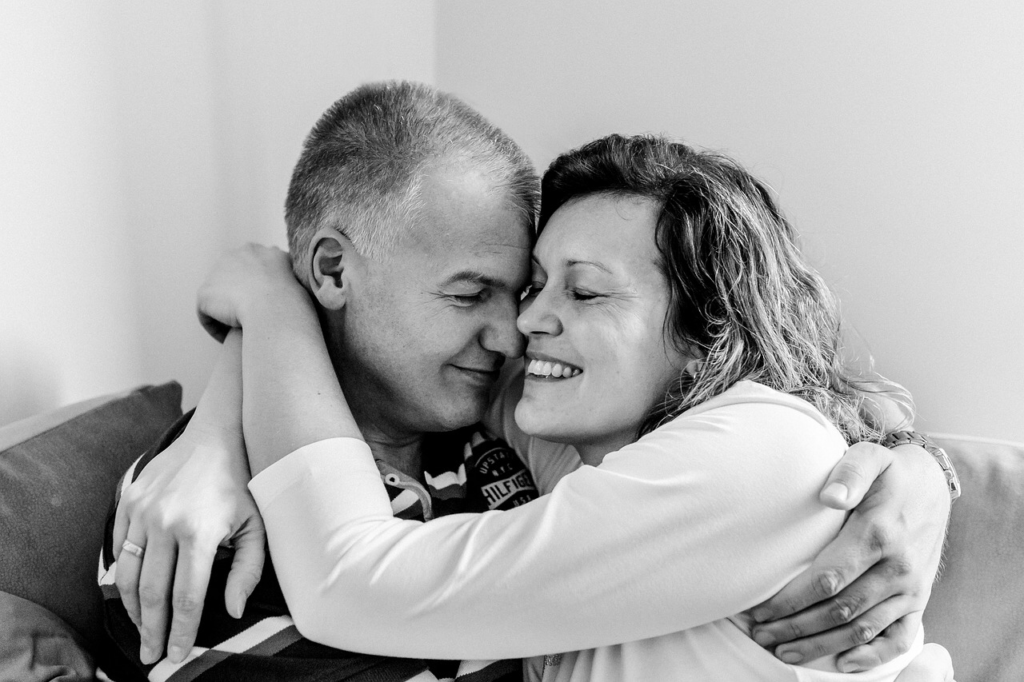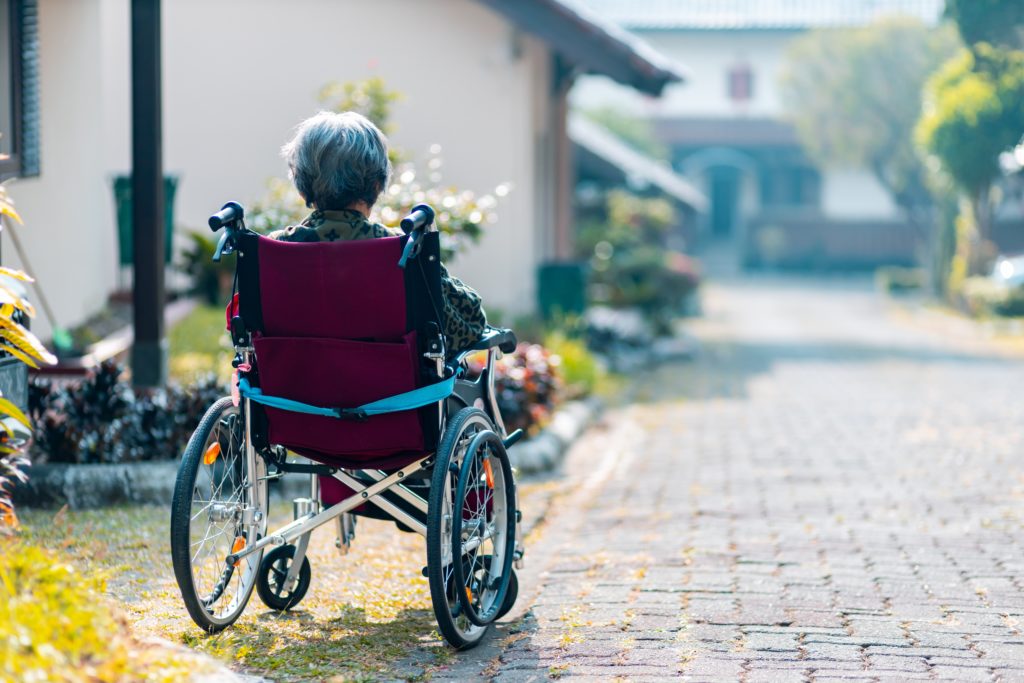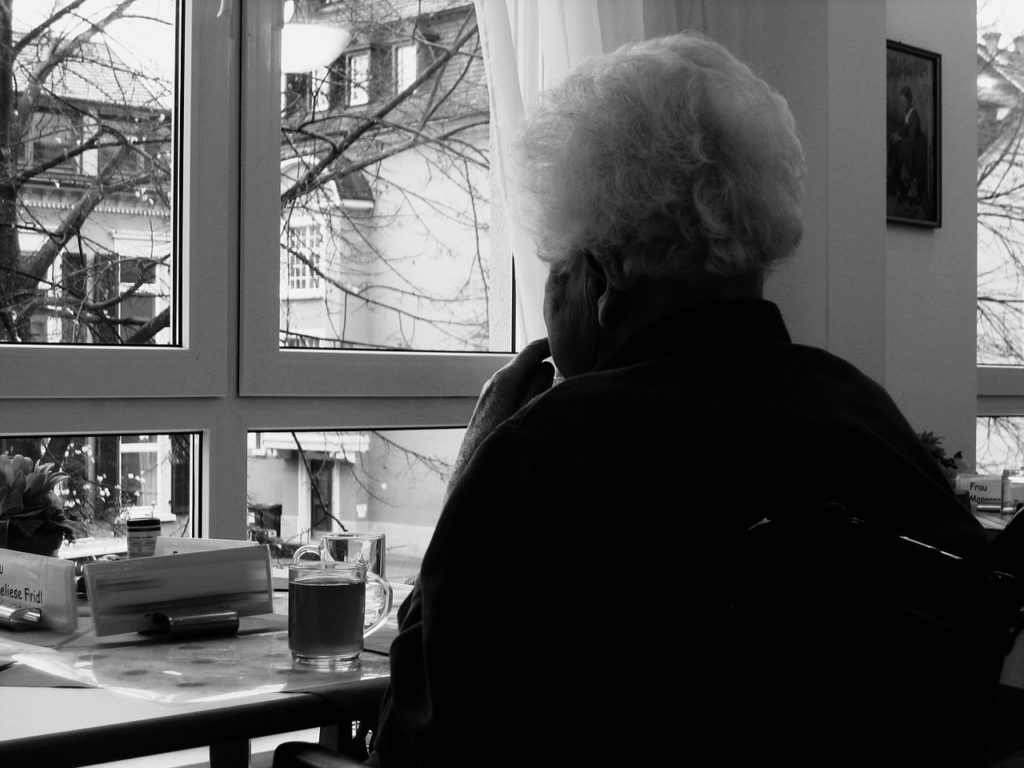People often hide Dementia for fear of being treated differently. They fear that others will no longer see them as the same person. They fear that they will not be talked to, but talked about. People with Dementia do not like to be patronized because they can often do a lot themselves, especially in the beginning.
So, why is it so important to become aware of what Dementia is and does to a person and his or her environment? Why is it that people with Dementia keep this secret from their family and environment? What are they afraid of? Why do we talk to the partner of the person with Dementia instead of the person suffering from it?

Keeping secrets
An international study by Alzheimer’s Disease International among 70,000 people in 155 countries showed that people with Dementia do not always dare to come out. Many people prefer not to realize that they have Dementia and keep it a secret. A taboo on the disease ensures that patients do not always receive the right care. It prevents them from asking for help, advice, and support and seeking medical help. There is a stigma of Dementia.
Among the respondents were people with Dementia, carers, doctors and the general public. The research is part of a global ADI campaign “Let’s talk about Dementia,” which emphasizes, among other things, the importance of talking about Dementia.
Currently, more than 50 million people worldwide have Dementia. This number is expected to triple to 152 million in 2050.

Let’s talk about Dementia
The ADI campaign is based, among other things, on the insight that talking about Dementia helps to tackle the stigma. The more people know about Dementia and how they can be involved the bigger the impact will be. Your role can be to help raise awareness for Dementia and share information to reduce the stigma that still surrounds Dementia.
What you can do as a family member or friend?
- Challenge stereotypes and negative attitudes about Dementia
- Share what you are doing for Dementia inclusivity through social media, local press, etc.
What you can do as a professional
- Raise awareness of Dementia by organizing awareness sessions in your community
- Look which community assets there are in your community and which groups could be open for a conversation about Dementia
- Engage with councils, businesses, service providers, charities, social clubs to promote Dementia inclusivity
- Share knowledge and learning of how to be Dementia inclusive

Worldwide, it is believed that people with Dementia are unpredictable
The ADI study found some other notable things. Worldwide, 64% of respondents think that people with Dementia are impulsive and unpredictable. More than 16% of the general public worldwide even think that people with Dementia are dangerous to their environment. However, much of the behavior of people with Dementia can be easily explained when you delve into the person in question, in the disease and when you learn to deal better with people with Dementia.
Concern: the understanding of the disease is low
A very large proportion of respondents think that Dementia is a normal part of the aging process and not a disease. The fear of developing Dementia appears to be high worldwide: 95% of respondents think they can develop Dementia in their lives.
The understanding of the disease is low. I find this very worrying because Alzheimer’s disease and other forms of Dementia are the fifth leading causes of death in the world.

To Be aware
When you or a loved one first receives a Dementia diagnosis, you may feel a range of contradictory emotions, sometimes simultaneously. Many people undergo a period of profound grief, with feelings of shock, denial and deep sadness.
The prospect of facing this significant life changer can make you feel demoralized, embarrassed or angry. You may even want to keep the diagnosis secret from friends or other family members.
On the other hand, you may feel a sense of relief. Finally, your suspicions have been validated, and you and your loved ones can seek out more support and therapeutic interventions.
The shock of the diagnosis can be paralyzing. Be patient, be gentle and compassionate with yourself; allow yourself to move through the mourning process. Try to feel all the feelings, rather than deny them, and be up-front with your family and friends about the diagnosis. You’ll likely move into problem-solving mode faster.

Searching for information
The moment families or partners hear that their loved one is suffering from a form of Dementia, they often do not know what this means.
Most families or partners, therefore, immerse themselves in the disease process and seek information about Dementia, because they want to be informed about everything about the disease and they want to know as much as possible in order to help their loved one. For some, searching for information is something they are working on day after day.
Many families or partners (caregivers) need to be in contact with other caregivers. For example for the exchange of experiences and tips. Others around you do not know exactly what you are experiencing as an informal caregiver. Nobody understands that, only fellow sufferers.

The Dementia expert informs, guides, thinks along, advises and helps to make choices. What a Dementia expert is called differs per country/region. Other terms used are case manager, care coordinator, Dementia consultant, coach, counselor, geriatric informal care counselor, and geriatric nurse.
For people living at home with Dementia, there is the possibility to go to a day treatment one or more days a week. Daycare offers people with Dementia meaningful daycare and temporarily relieves informal caregivers of care.
Despite the commitment of the caregiver, the time may come when care for the person with Dementia will become impossible at home. Admission to a nursing home is a major event.

Besides the care from daycare, the Dementia case manager, Dementia expert and from the nursing home, there are other forms of care and support. People with Dementia and their carers can use, for example, home care, primary care, respite care and care of volunteers. Also, the use of medication is part of the care.
Recognize the 5 common ways Dementia can be hidden
The signs of Dementia can be subtle at first. These are diseases that slowly steal a person’s identity and personality. No one wants to lose themselves to this heart-wrenching and brain-destroying disease, which is why denial, changing the subject or compensating for symptoms is quite common.
1. Refusing to participate in an activity they once loved.
Refusal to do a chore, play a game that was once simple, or try something new can signify a problem. He or she may be having trouble remembering how to do activities that were once second-nature, which makes learning new information even more difficult.
2. Covering-up problems.
Whether it’s having trouble driving or interacting with family and friends; spouses often cover for their loved ones. They’ll step in and complete tasks, finish sentences or make excuses for their spouse.
3. Being in denial of their own cognitive impairment.
Insisting they’re fine when there is an obvious problem often signifies denial. Excuses such as, “This is normal forgetfulness for my age,” or “I’m fine, just tired” are some signs of denial. Making excuses protects the person with Dementia in their eyes by convincing himself or herself that everything is fine so they don’t need to worry, when, in reality, they may not be fine and might need either some form of treatment or an alternative living arrangement.
4. Keeping it a secret for fear of being put into a home.
No one wants to give up their freedom. Seniors will go to great lengths to cover up they are going downhill so that they can remain “independent”. Some studies have indicated that people who have a high intellect and more education can cover up the signs of Dementia for a longer period of time.
They can even deny it to themselves longer. These people simply start at such a high level of knowledge that others don’t notice a slight slip. This isn’t, of course, always true. Many who have not had higher education are very clever and can cover up memory slips with ease. But will also hoard medicines. [ this is a separate subject for another blog ] No two people are the same, so adult children should be on the lookout for signs of deterioration in their parents.

5. Having anosognosia.
More than denial, anosognosia is a lack of awareness of impairment — most people do not even know that they are ill — and it affects up to 81% of those with Alzheimer’s. Anosognosia is still difficult to define, but researchers know it results from anatomical changes or damage to the part of the brain that affects the perception of one’s own illness.
If there is no official diagnosis other than “early Dementia” or “mild cognitive impairment”, it’s not a signal to the family that everything is okay and no one needs to plan ahead. Rather, it’s time to take a look at the future of your loved ones.
Get prepared today, rather than wait for a crisis. Starting a tough conversation is easier than you think.

If you want to have a dialogue about this subject or have other questions, please contact us via our contact form, Facebook page, Instagram or Twitter. Introductory and intake interviews are always free! The conversations can take place both live and via Skype.
